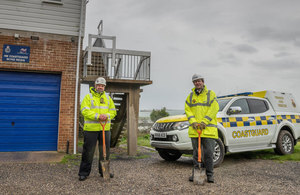Written Ministerial Statement on Unconscious Bias Training
This government is committed to levelling up opportunity for everyone, no matter what their background. We are also determined to eliminate discrimination in the workplace. To meet those ambitions, we must ensure that policy and advice on equality is evidence-based, and is delivered in a way that means we can respond quickly to new insights.
Earlier this year, the Government Equalities Office commissioned the Behavioural Insights Team for a summary of the evidence on unconscious bias and diversity training. Titled ‘Unconscious bias and diversity training – what the evidence says’, the report highlights that ‘there is currently no evidence that this training changes behaviour in the long term or improves workplace equality in terms of representation of women, ethnic minorities or other minority groups’. It also states that there is emerging evidence of unintended negative consequences.
The report is published alongside this response, and will be deposited in the House Libraries, today. In light of its findings, Ministers have concluded that unconscious bias training does not achieve its intended aims. It will therefore be phased out in the Civil Service. We encourage other public sector employers to do likewise.
Background
Unconscious bias training typically aims to raise awareness of the potential biases and cognitive shortcuts that may negatively affect decision-making and behaviour in the workplace. The intent is usually to reduce both explicit and implicit bias towards members of particular groups that share characteristics protected under law and change behaviour.
Although unconscious bias training takes a variety of forms, it is normally delivered as a discrete individual or group session that aims to set out the theory behind implicit bias, provide exercises that demonstrate how such biases might potentially affect behaviour, and suggest strategies to participants for avoiding that behaviour in future.
Such training sessions have been introduced by a range of organisations as part of a well-intentioned effort to build fairer and more inclusive workplaces. They have often formed part of a wider employer toolkit aimed at tackling discrimination and building inclusion.
However, in recent years a significant debate has emerged over their effectiveness and quality. Despite a growing diversity training industry and increased adoption of unconscious bias training programmes, a strong body of evidence has emerged that shows that such training has no sustained impact on behaviour and may even be counter-productive.
Lack of evidence to support positive change
To be successful in tackling discrimination, unconscious bias training should change behaviour. However, evidence suggests that attitudes and behaviours are each driven by different psychological systems, so a single intervention is unlikely to impact effectively on both. A systematic review of unconscious bias training examining 492 studies (involving more than 87,000 participants), found changes to unconscious bias measures were not associated with changes in behaviour (1). Formal assessments of bias (eg the Implicit Association Test) have also been criticised for failing to generate replicable results even when the same individuals have been re-tested (2).
Further evidence also suggests that unconscious bias training may even have detrimental effects. The Equality and Human Rights Commission found that evidence for its ability effectively to change behaviour is limited and “there is potential for back-firing effects when UBT participants are exposed to information that suggests stereotypes and biases are unchangeable.” Instructions to suppress stereotypes may not only activate and reinforce unhelpful stereotypes, they may provoke negative reactions and actually make people exacerbate their biases (3).
Finally, there is no recognised way of assuring the quality of unconscious bias training and multiple interventions of variable content may be given that label. This has serious implications for organisations, who risk putting funding into poor quality and ineffective training.
Government conclusion
The Civil Service is committed to being an open and inclusive employer. Civil servants work on a range of complex policies every day; working inclusively means that they will make better decisions, solve problems more effectively and ultimately deliver better services to citizens. An individual’s background must never be a limiting factor in the workplace. Our aspiration is clear: a Civil Service open to all, with individuals from a variety of backgrounds adding breadth and depth to our understanding of contemporary British society, providing greater challenge to received wisdom and fresh perspectives to the challenges we face as a nation – united by a commitment to the fundamental values of public life and service.
Efforts to ensure the Civil Service is representative of the whole population it serves, and that its workplaces are free from discrimination, must be based on clear evidence of what works, must uphold the merit principle for recruitment and promotion, and must represent value for taxpayers’ money. This approach is the reason, for example, that the Civil Service uses clear, standardised assessment techniques for recruitment and tests the fairness of any such tools with diverse user groups before deploying them.
Given the evidence, now captured in the report accompanying this statement, an internal review decided in January 2020 that unconscious bias training would be phased out in departments. In addition, while there is clearly a role for training to support a more inclusive workplace and Civil Service, evidence also suggests that even the broader category of ‘diversity training’ as a standalone exercise can undermine such efforts if it appears to be a “tick box exercise”. The Civil Service will therefore integrate principles for inclusion and diversity into mainstream core training and leadership modules in a manner which facilitates positive behaviour change. This new strategy will be published in the new year, and will reassert our commitment to being an inclusive employer with a stronger focus on engaging measurable action.
The government expects other parts of the public sector, including local government, the police, and the NHS, to review their approaches in light of the evidence and the developments in the Civil Service. We will continue to build the evidence on what works to make our workplaces fairer, and unite and level up across our country, with the reformed Equality Hub playing a key role.
The WMS is published on the parliament website here

